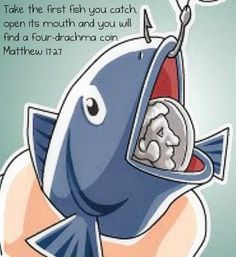When I was in school, and the teachers were going through the work, sometimes a student would ask, ‘Do we have to know this for the exam? Is it going to be in the exam?’And what they usually meant was, if it isn’t crucial to passing we are going to skip it out. They wanted to do the absolute basic minimum to pass, and that meant finding out what they could ignore, or leave out, to scrape through.
Sometimes, Christians live like this. They have an ‘Is this for the exam’ kind of mentality. They do the things which the world does; they live selfishly and they say, ‘We are not under the law, we are under grace.’ In other words, ‘this doesn’t count, God won’t fail me.’ They are involved in things which even the world regards as worldly or questionable, but their defence is, ‘You can’t show me a Scripture to forbid this. There is nothing in the Bible which commands me to do this or that. I won’t fail if I do this or don’t do that.’
That is what I call minimalist obedience. It is the Christian who insists on doing the absolute minimum to get by in  their walk with God. This is how minimal obedience thinks: ‘What is the least amount of effort I can put into my Christian life and still be OK? How can I do as much as I want to do, and as little as God wants me to do without God getting upset with me and making things go bad for me?’
their walk with God. This is how minimal obedience thinks: ‘What is the least amount of effort I can put into my Christian life and still be OK? How can I do as much as I want to do, and as little as God wants me to do without God getting upset with me and making things go bad for me?’
Minimalist obedience thinks, ‘What is the absolute minimum I can pray, and be OK?’ And some apparently answer, ‘At mealtimes and at church.’ ‘What is the absolute minimum I can read my Bible and be OK?’ And they seem to answer, ‘A chapter lazily skimmed over once or twice a week?’ And so it goes through the Christian life, ‘What is the minimum I can give to God before the angels burst out laughing at my offering? What is the least amount of effort I can put into spiritual growth? What is the least amount of effort I should put into conforming my life to God’s Word without there being negative consequences?’
And the person who thinks this way also thinks the other way: ‘What is the maximum amount of time I can spend in front of the TV before it starts to look like I am a couch potato? What is the closest I can get to my unbelieving friends without the church or other Christians noticing my double life? What is the most time I can spend on my vacations and entertainment and leisure before it starts to look like I don’t take life or eternity or God very seriously at all? What is the closest I can be to the world while still claiming to follow Christ?’
When you live like this – you have missed the heart of what it means to be a follower of Christ. When Christ saves you, He saves you not to be a person doing the absolute minimum for Him, and the absolute maximum for yourself. He saves you to do the reverse. To love Him to the absolute maximum, denying yourself, knowing He will care for you.
“And when they had come to the multitude, a man came to Him, kneeling down to Him and saying, 15 “Lord, have mercy on my son, for he is an epileptic and suffers severely; for he often falls into the fire and often into the water. 16 So I brought him to Your disciples, but they could not cure him.”17 Then Jesus answered and said, “O faithless and perverse generation, how long shall I be with you? How long shall I bear with you? Bring him here to Me.” 18 And Jesus rebuked the demon, and it came out of him; and the child was cured from that very hour.19 Then the disciples came to Jesus privately and said, “Why could we not cast it out?” 20 So Jesus said to them, “Because of your unbelief; for assuredly, I say to you, if you have faith as a mustard seed, you will say to this mountain, ‘Move from here to there,’ and it will move; and nothing will be impossible for you. 21 However, this kind does not go out except by prayer and fasting.”22 Now while they were staying in Galilee, Jesus said to them, “The Son of Man is  about to be betrayed into the hands of men, 23 and they will kill Him, and the third day He will be raised up.” And they were exceedingly sorrowful. 24 When they had come to Capernaum those who received the temple tax came to Peter and said, “Does your Teacher not pay the temple tax?”25 He said, “Yes.”And when he had come into the house, Jesus anticipated him, saying, “What do you think, Simon? From whom do the kings of the earth take customs or taxes, from their sons or from strangers?” 26 Peter said to Him, “From strangers.”Jesus said to him, “Then the sons are free. 27 Nevertheless, lest we offend them, go to the sea, cast in a hook, and take the fish that comes up first. And when you have opened its mouth, you will find a piece of money, take that and give it to them for Me and you.” – Matthew 17:14-27
about to be betrayed into the hands of men, 23 and they will kill Him, and the third day He will be raised up.” And they were exceedingly sorrowful. 24 When they had come to Capernaum those who received the temple tax came to Peter and said, “Does your Teacher not pay the temple tax?”25 He said, “Yes.”And when he had come into the house, Jesus anticipated him, saying, “What do you think, Simon? From whom do the kings of the earth take customs or taxes, from their sons or from strangers?” 26 Peter said to Him, “From strangers.”Jesus said to him, “Then the sons are free. 27 Nevertheless, lest we offend them, go to the sea, cast in a hook, and take the fish that comes up first. And when you have opened its mouth, you will find a piece of money, take that and give it to them for Me and you.” – Matthew 17:14-27
And in this miracle, the Lord Jesus demonstrates that, through His attitude toward the temple tax. Our Lord’s example in obedience is not an ‘Is it on the exam’ kind of obedience. Jesus’ example is going to teach us two things about truly obeying God. Right after the miracle of casting out the demon from the boy, Jesus and His disciples arrive back in Capernaum. And along come some tax collectors. Now they were not tax collectors for Rome. These were Jewish tax collectors. And the tax they were collecting was a tax called for in Exodus 30, where every male over the age of 20 had to give a half-shekel. That was about the equivalent of two days wages. The Greek equivalent was two drachmas – so this was called the two drachma tax. The tax would be used for the upkeep of the Temple, buying some of the animals, keeping up the materials, refurnishing where necessary. It was usually paid at Passover, but you could still pay it later, at Pentecost, or even later at the feast of Tabernacles. It was much later than Passover here, so the temple-tax collectors came knocking. They may well have been looking for more evidence to accuse Jesus; after all, He seemed to overthrow so many of their traditions.
They ask Peter, ‘Your teacher does not pay the temple tax, does He?’ Peter, without asking or thinking, simply said, ‘Yes, yes, He does.’ We have reason to believe Jesus must have paid it in previous years, so perhaps Peter was simply thinking about that. But when Peter enters the house where Jesus is, Jesus anticipates Peter. He knows what has
gone on, and what Peter has thought. So He gently teaches Peter some truths about His identity as Lord, and about obedience.
He asks Peter, ‘From whom do the Kings of the world get their tax money, from their own children or strangers?’ In  those days, the royal families were tax exempt. And Peter says, ‘From strangers.’ Jesus says, ‘Well then, the children are free – the children are exempt from the tax. They do not have to pay it. They are not under obligation.’ Who does the Temple belong to? As it were, who is the King of the Temple? God is. Would you tax God to maintain His temple? No. Who is God’s Son? Jesus. Do you tax the Prince to maintain His temple? No. Jesus is exempt. Jesus does not have to pay the Temple tax, because of His identity. His status as God’s Son means He does not have to obey the Law in Exodus 30. So Jesus is also gently correcting Peter’s impulsive answer. Peter isn’t completely wrong – for Jesus does pay, but not for the reasons others pay. But, says Jesus, ‘Lest we should offend them – go and fish, and the first fish you catch will have money for your tax and mine, and go and pay them.’ So here you see the first principle of truly obeying God.
those days, the royal families were tax exempt. And Peter says, ‘From strangers.’ Jesus says, ‘Well then, the children are free – the children are exempt from the tax. They do not have to pay it. They are not under obligation.’ Who does the Temple belong to? As it were, who is the King of the Temple? God is. Would you tax God to maintain His temple? No. Who is God’s Son? Jesus. Do you tax the Prince to maintain His temple? No. Jesus is exempt. Jesus does not have to pay the Temple tax, because of His identity. His status as God’s Son means He does not have to obey the Law in Exodus 30. So Jesus is also gently correcting Peter’s impulsive answer. Peter isn’t completely wrong – for Jesus does pay, but not for the reasons others pay. But, says Jesus, ‘Lest we should offend them – go and fish, and the first fish you catch will have money for your tax and mine, and go and pay them.’ So here you see the first principle of truly obeying God.
 – David De Bruyn, Professor of Church History, Shepherds’ Seminary Africa
– David De Bruyn, Professor of Church History, Shepherds’ Seminary Africa

